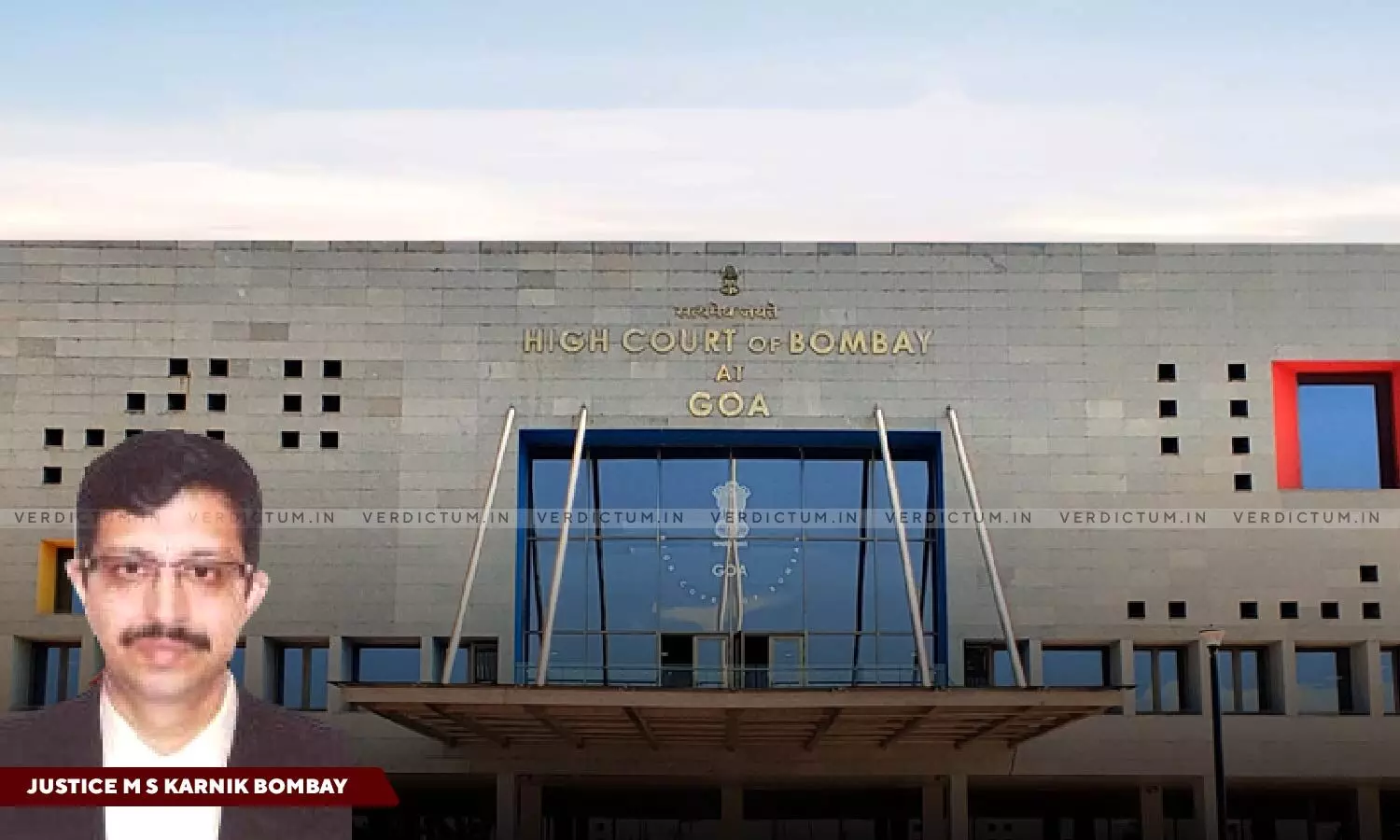
Meaning Of ‘Freely Consented’ In The Context Of De Facto Separation For Purpose Of Article 4(8) Of Law Of Divorce In Goa: Bombay HC Explains
 |
|The Bombay High Court observed that when the divorce is sought on the ground mentioned in Clause 8 of Article 4 of law of divorce in Goa, the restriction provided in para 3 for leading evidence will be on such spouse who has filed for divorce.
The Court was hearing a Second Appeal which was admitted on the substantial question of law on the meaning of ‘freely consented’ in the context of a de facto separation for the purpose of Article 4(8) of the Law of Divorce.
The bench of Justice MS Karnik observed, “…when the divorce is sought on the ground mentioned in Clause 8 of Article 4, the restriction provided in para 3 for leading evidence will be on such spouse who has filed for divorce. Para 3 cannot be read to take away the right of the wife opposing the petition for divorce to lead evidence which would go to show that such separation is not freely consented on the basis of the evidence on record. That the de facto separation is freely consented has to be established.”
Advocate Shivan Desai appeared for the Appellant and Advocate Prachi Sawant appeared for the Respondent.
Brief Facts-
The husband married the wife and marriage was duly registered. Thereafter, the marriage was solemnized by performing a religious ceremony as per Muslim rites. The wife started residing in the matrimonial home along with the husband and his family members. A son was born out of the said wedlock. It was post-marriage that the wife came to know that the husband was having a relationship outside marriage and was living with ‘A’ from whom the husband has two sons.
The Court mentioned the decision in Sheetal Prakash Pai Nee Vijaya Bhangui (Smt.) v/s. Prakash Ramnath Pai (Dr.) – 2010 DGLS (Bom.) 66 where according to the Court it was observed, “the cause for separation is not material, for what is material is the animus non revertendi (intention not to reunite) during the period of continuous ten years of separation between the spouses.”
The Court further mentioned the decision in Antonio Ferdino Varela v/s. Theresa Maria Angela Varela – 2014 (5) Bom. C.R. 117 where according to the Court it was observed, “for proving divorce on the ground under Article 4(8) of the Law of Divorce, the free consent is not an issue to be proved and it is a presumption that lows from the proof of three facts, namely, (a) the couple is de facto separated; (b) the separation has been un-interrupted; and that (c) the separation is for more than ten years.”
The Court noted that there was no intention on the part of the wife to live separately from the husband, but was compelled to do so and hence such separation can never be ‘freely consented’ enabling the husband to obtain divorce under Article 4(8) of the Law of Divorce.
The Court further noted, “The evidence on record shows that the wife continues to reside in the original matrimonial home along with her in-laws. he wife is justiied in refusing to reside with her husband in the new matrimonial home where he is residing with ‘A’. This is not a case where de facto separation is freely consented.”
Accordingly, the Court dismissed the Second Appeal.
Cause Title: Arshad Khalifa alias Arshad Hussain v. Gulzar Khalifa (Neutral Citation: 2024:BHC-GOA:1582)
Appearance:
Appellant: Advocates Shivan Desai and M. Viegas
Respondent: Advocates Prachi Sawant